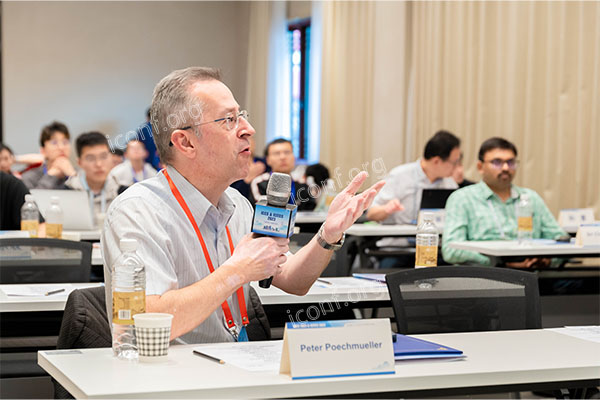Attending academic conferences is a valuable opportunity for researchers, scholars, and students to present their work, network with peers, and stay updated with the latest advancements in their fields. However, the costs associated with travel, accommodation, and registration can be a significant barrier. Fortunately, there are numerous travel grants available to help alleviate these expenses. This guide will provide an overview of travel grants for academic conferences in late 2024 and how to apply for them.
Why Apply for Travel Grants?
Travel grants offer several benefits:
• Financial Support: Cover the costs of travel, accommodation, and conference registration.
• Career Advancement: Gain exposure for your research and enhance your academic profile.
• Networking Opportunities: Connect with other researchers, potential collaborators, and industry leaders.
• Professional Development: Attend workshops, sessions, and discussions that can further your knowledge and skills.
Types of Travel Grants
Institutional Grants
Many universities and research institutions offer travel grants to their students and staff. Check with your institution’s research office or graduate school for available funding opportunities.
Conference-Specific Grants
Some conferences provide travel grants to attendees, particularly for students and early-career researchers. These grants are often competitive and require a strong application.
External Funding Organizations
Numerous external organizations and foundations offer travel grants for academic conferences. These can be discipline-specific or open to researchers from various fields.
Notable Travel Grants for Late 2024
1. IEEE Travel Grants
Eligibility: Students and early-career researchers presenting at IEEE conferences.
Funding: Covers travel expenses, accommodation, and registration fees.
Application Process: Submit an application through the IEEE conference website, including a CV, a letter of recommendation, and an abstract of your presentation.
2. ACM SIG Travel Grants
Eligibility: ACM SIG members presenting at ACM conferences.
Funding: Provides partial or full coverage of travel and accommodation costs.
Application Process: Apply through the ACM SIG website, providing a detailed travel budget, a letter of support, and proof of conference participation.
3. DAAD Conference Travel Grants
Eligibility: German researchers and students presenting at international conferences.
Funding: Covers travel expenses and conference fees.
Application Process: Apply through the DAAD website, providing a research proposal, a letter of invitation from the conference, and a detailed budget.
4. Fulbright Scholar Program Travel Grants
Eligibility: U.S. scholars and researchers participating in international conferences.
Funding: Provides funding for travel, accommodation, and registration fees.
Application Process: Submit an application through the Fulbright website, including a project statement, CV, and letters of recommendation.
5. European Research Council (ERC) Travel Grants
Eligibility: ERC grant recipients presenting at international conferences.
Funding: Covers travel, accommodation, and conference registration costs.
Application Process: Apply through the ERC portal, providing details of the conference, an abstract of your presentation, and a travel budget.
How to Apply for Travel Grants
Step 1: Identify Relevant Grants
Research and identify travel grants that match your eligibility and conference participation. Resources like iConf.org can help you find suitable grants.
Step 2: Prepare Your Application
Gather all necessary documents, including your CV, abstract, letters of recommendation, and a detailed travel budget. Tailor your application to highlight the significance of your research and the benefits of attending the conference.
Step 3: Follow Guidelines
Carefully read and follow the application guidelines for each grant, ensuring you meet all deadlines and requirements.
Step 4: Submit Early
Submit your application well in advance of the deadline to avoid any last-minute issues. Early submissions can also demonstrate your commitment and organization.
Step 5: Follow Up
After submitting your application, follow up with the grant provider if you have not received a response within the expected timeframe. This shows your continued interest and dedication.
Conclusion
Travel grants can significantly ease the financial burden of attending academic conferences, allowing you to focus on presenting your research and networking with peers. By identifying and applying for relevant travel grants, you can make the most of your conference experience in late 2024. For a comprehensive list of upcoming conferences and available travel grants, visit iConf.org. Start your application process today and take a crucial step forward in your academic journey.
